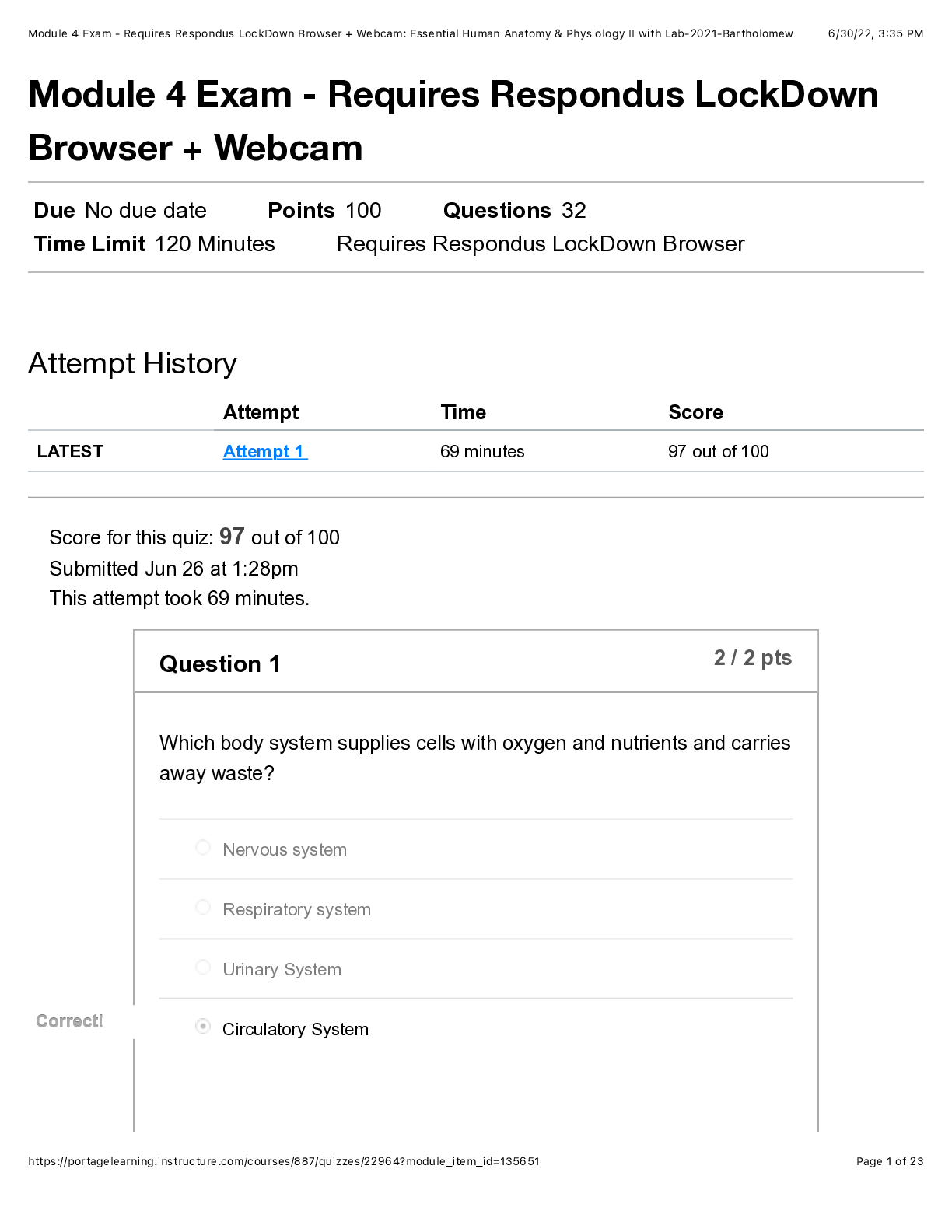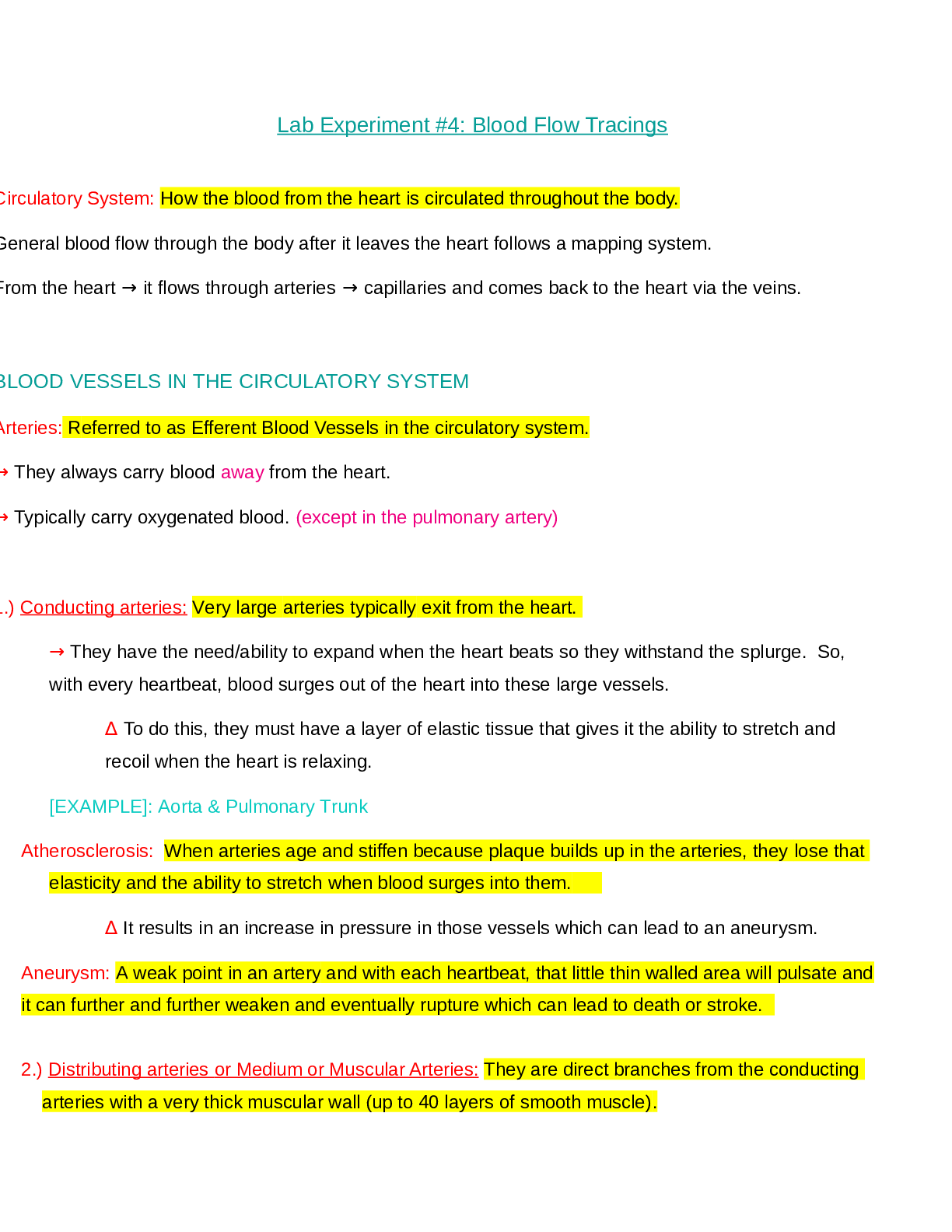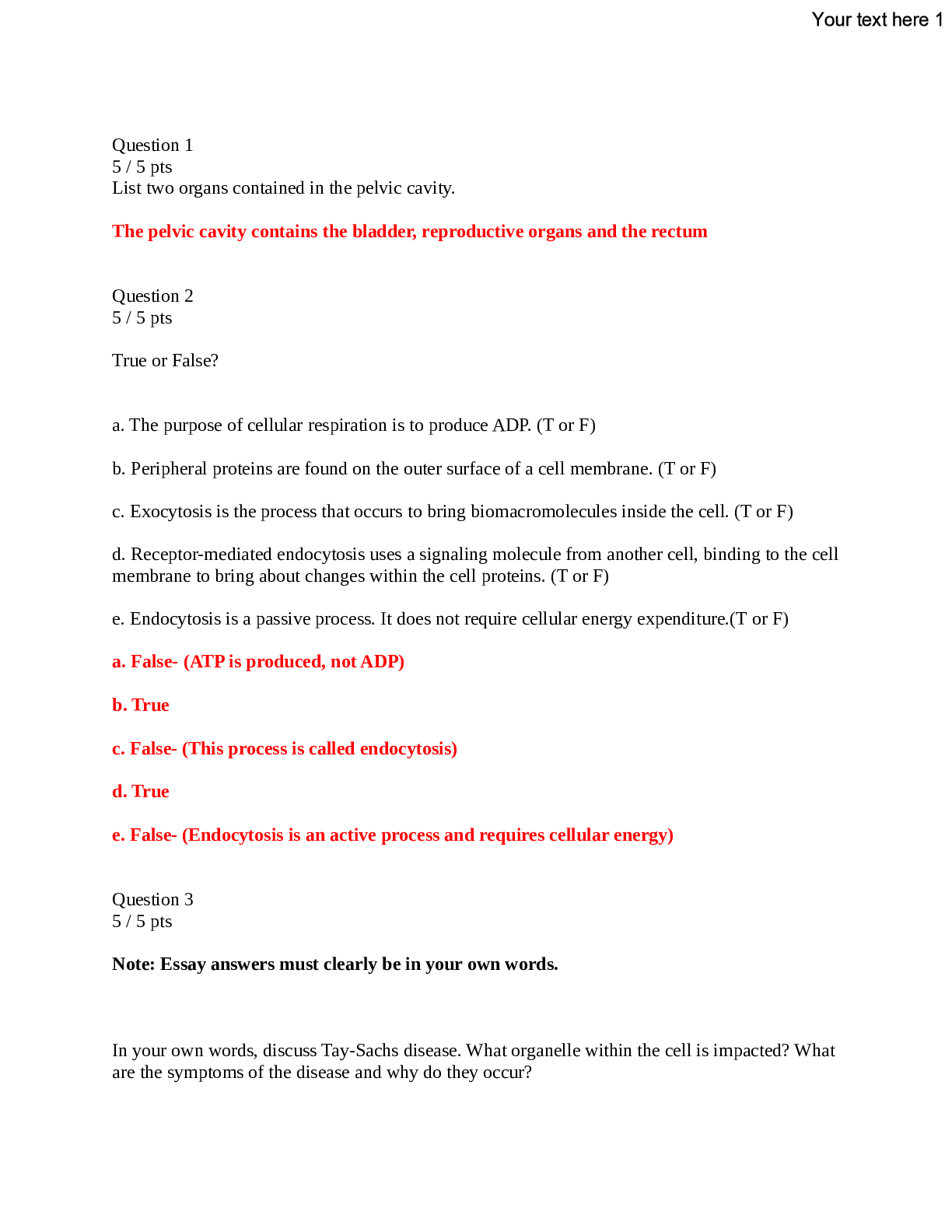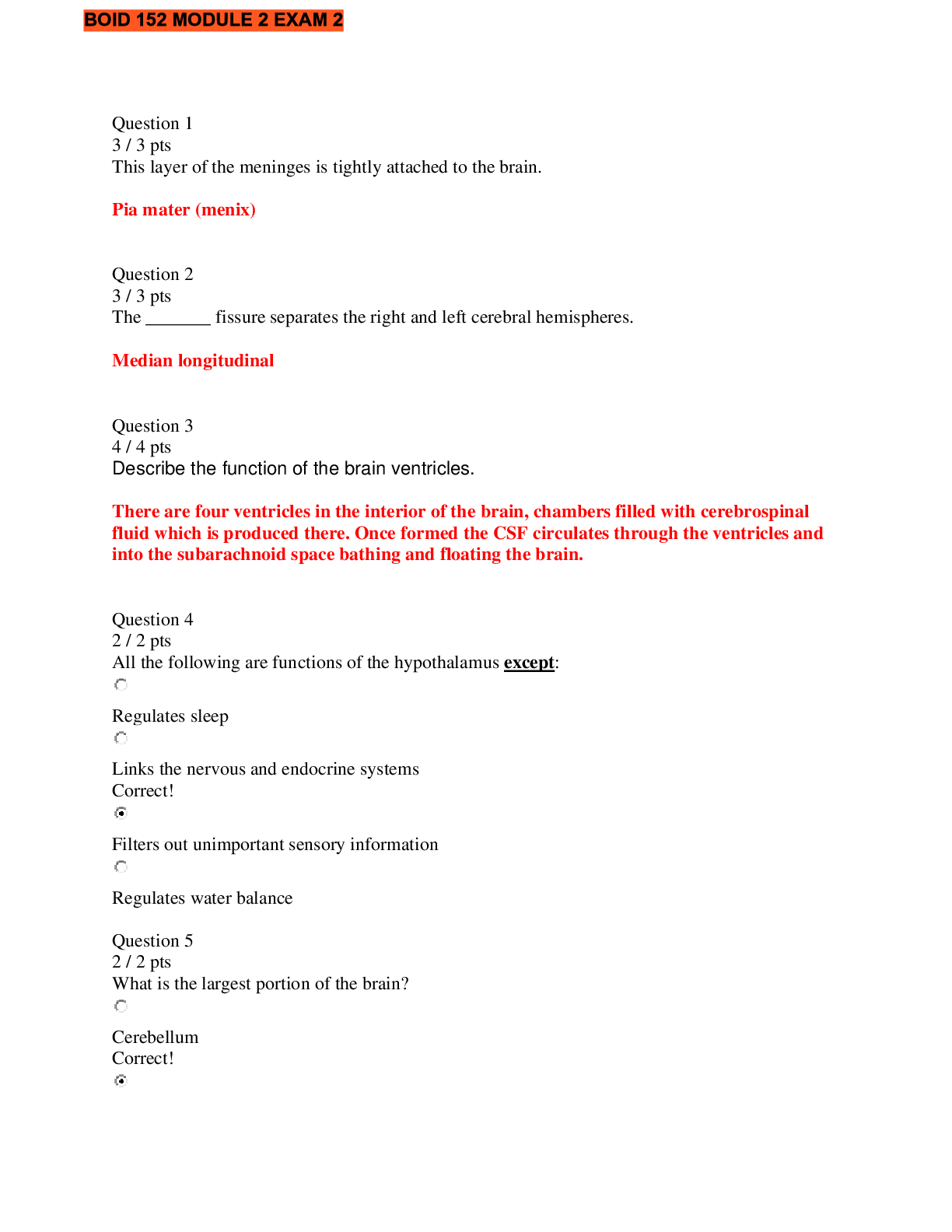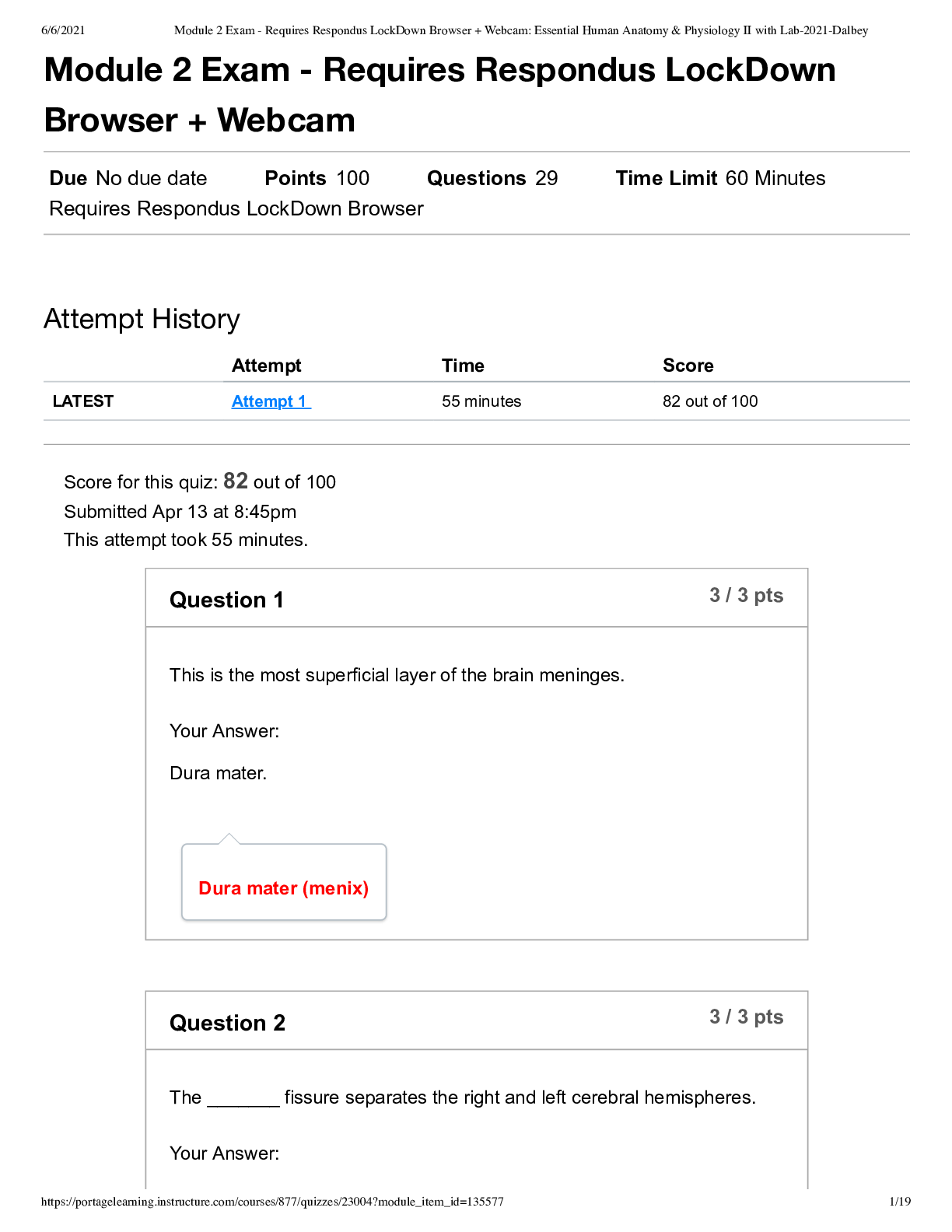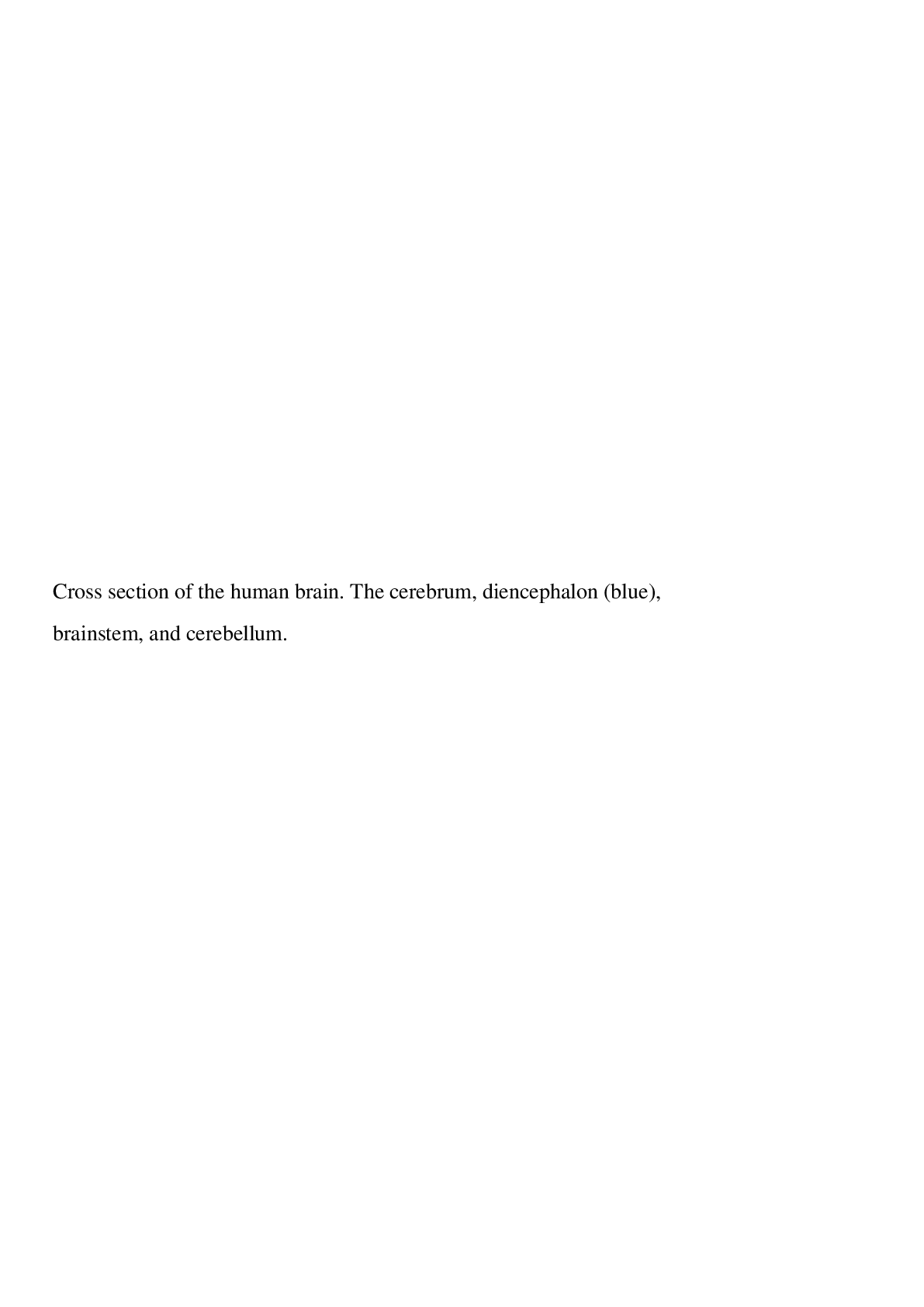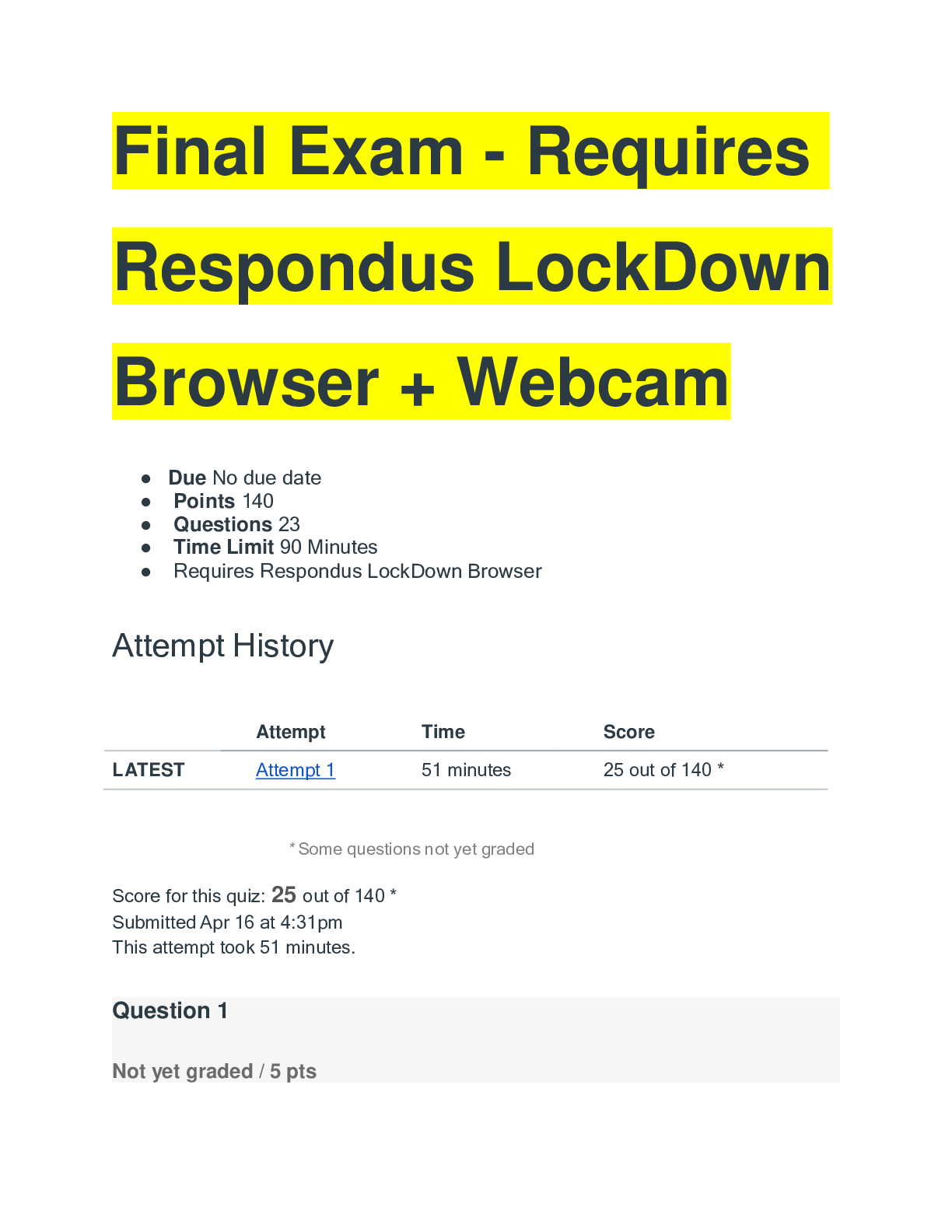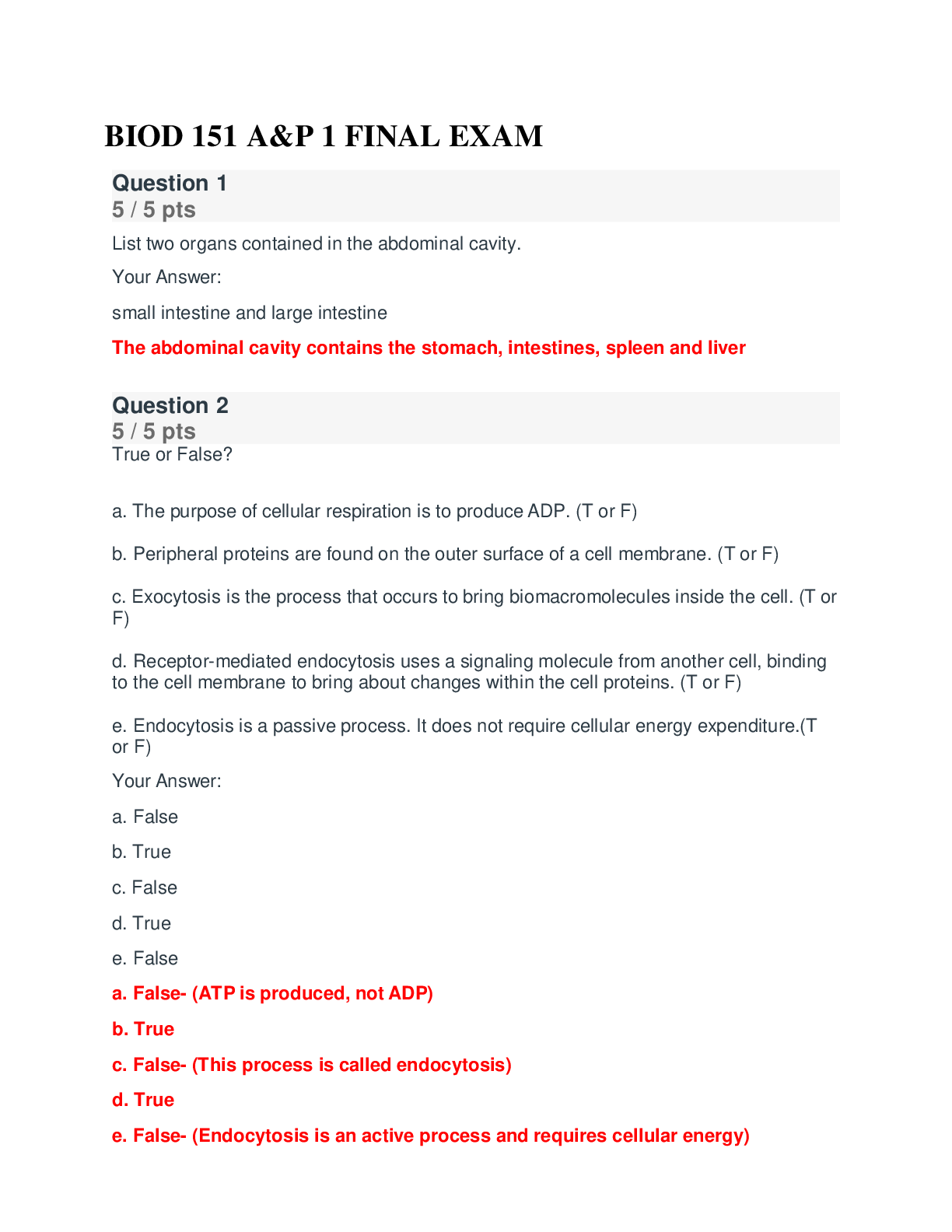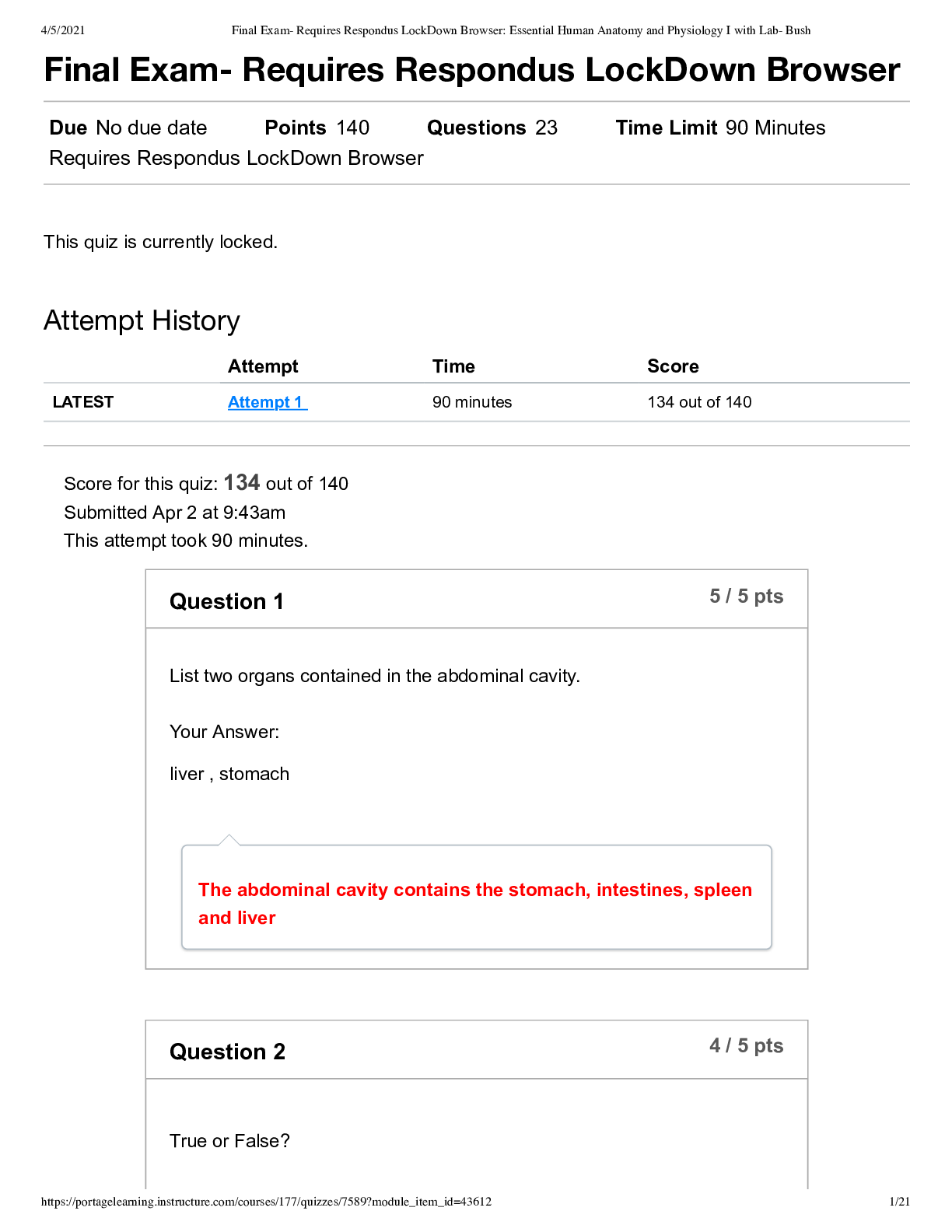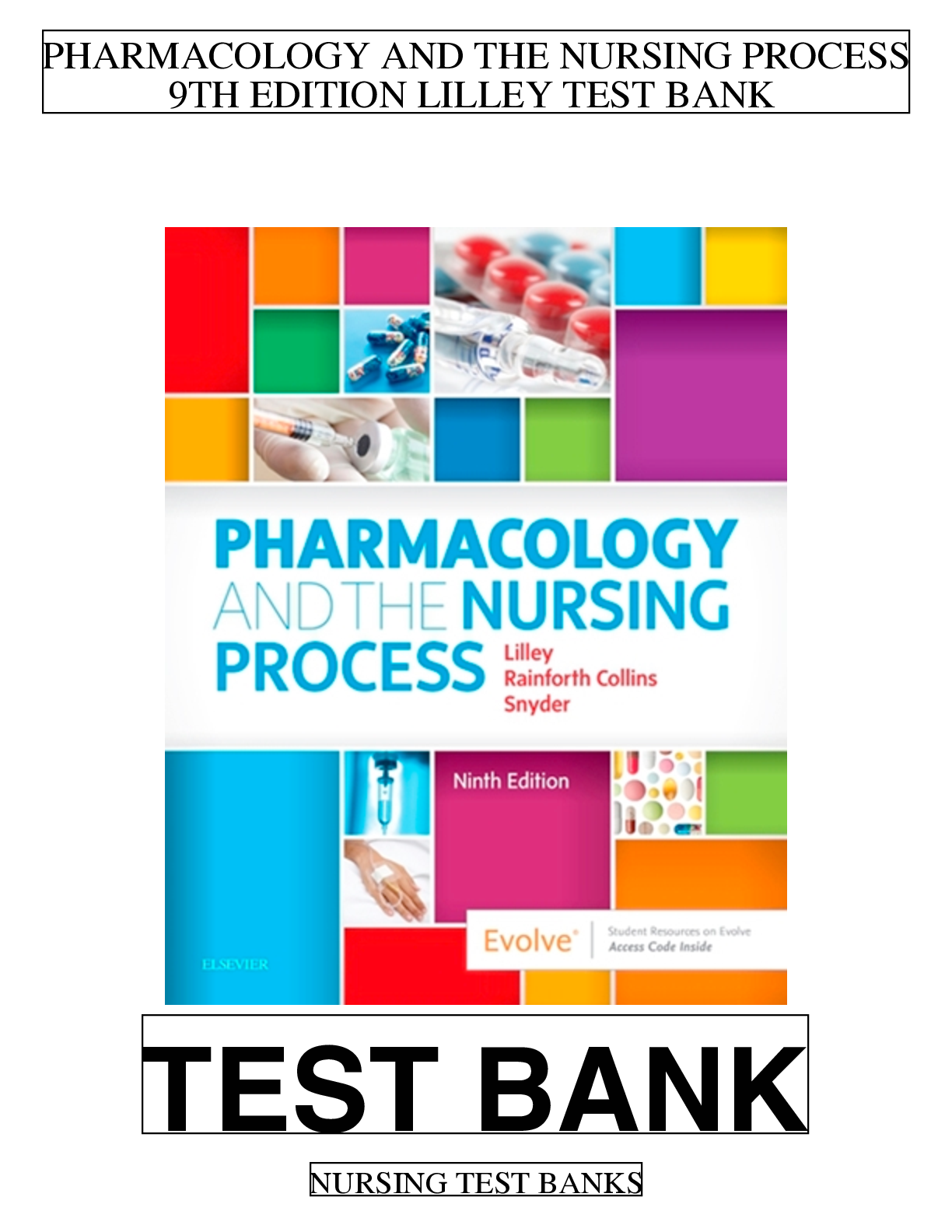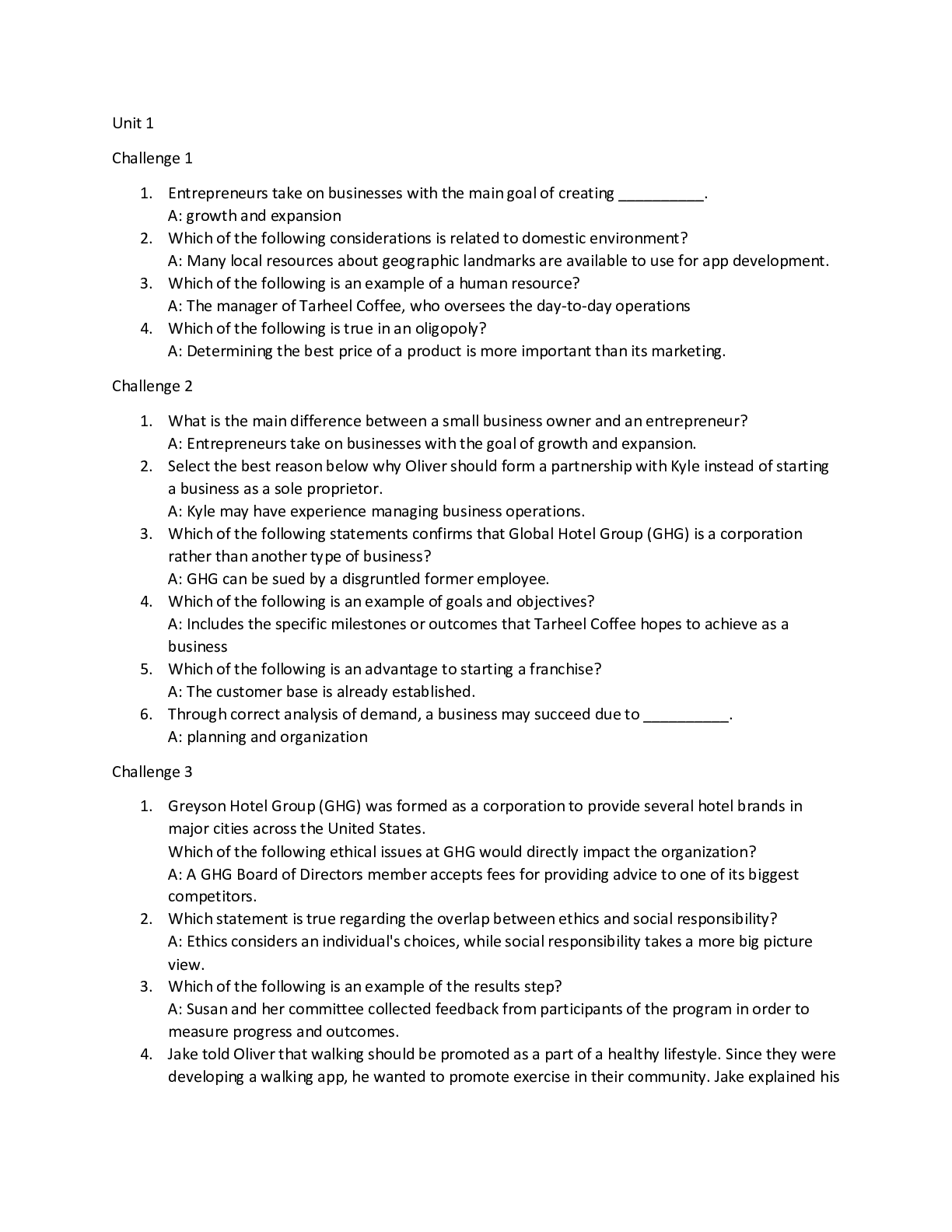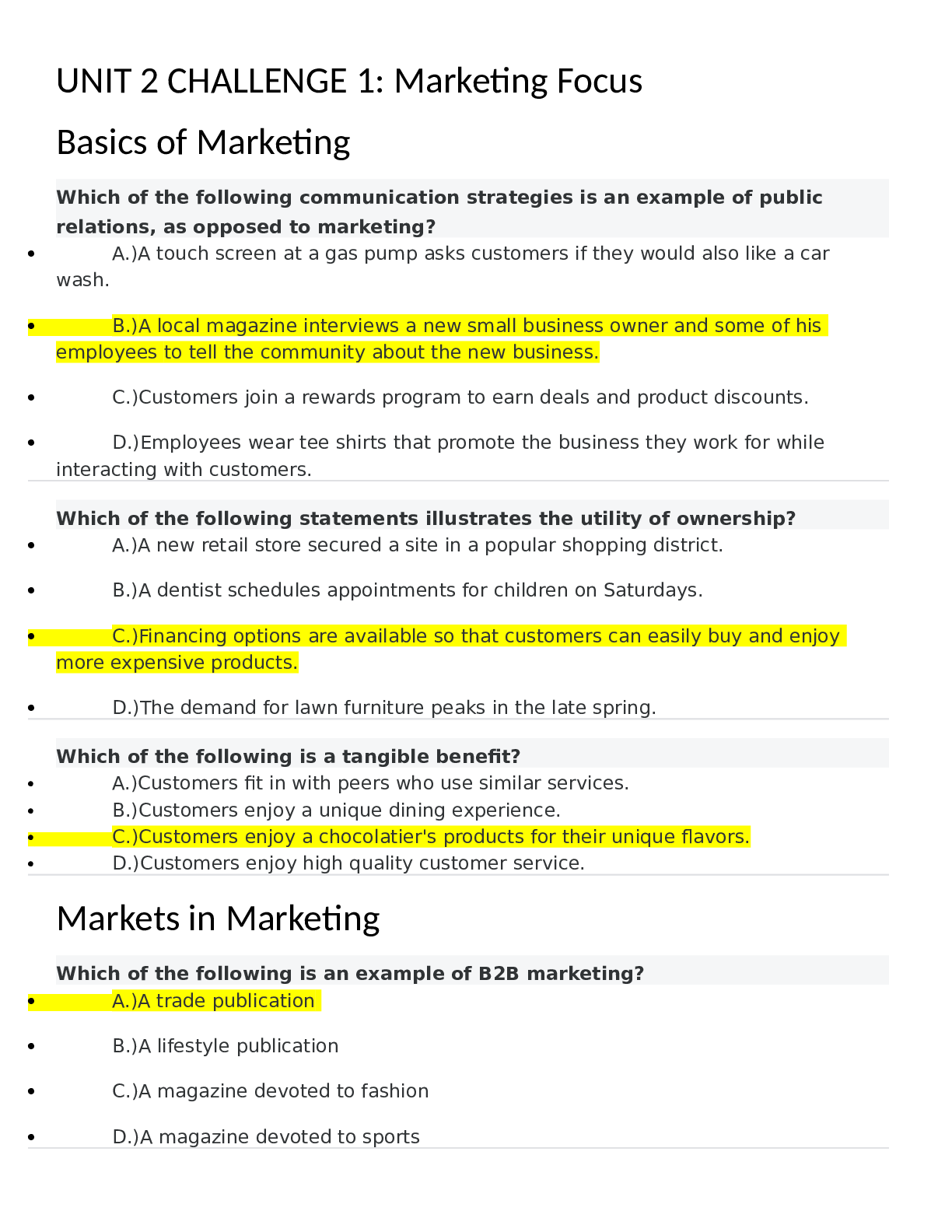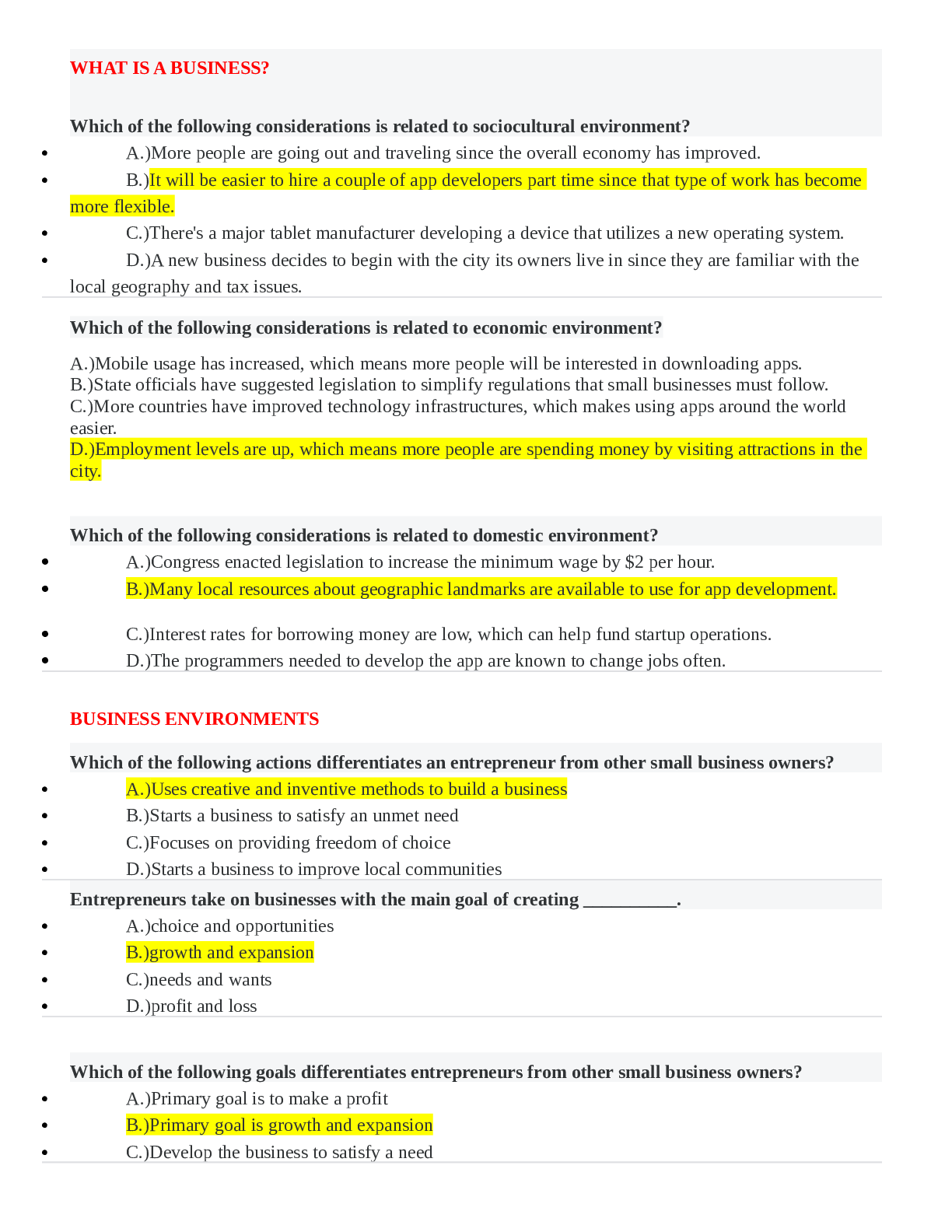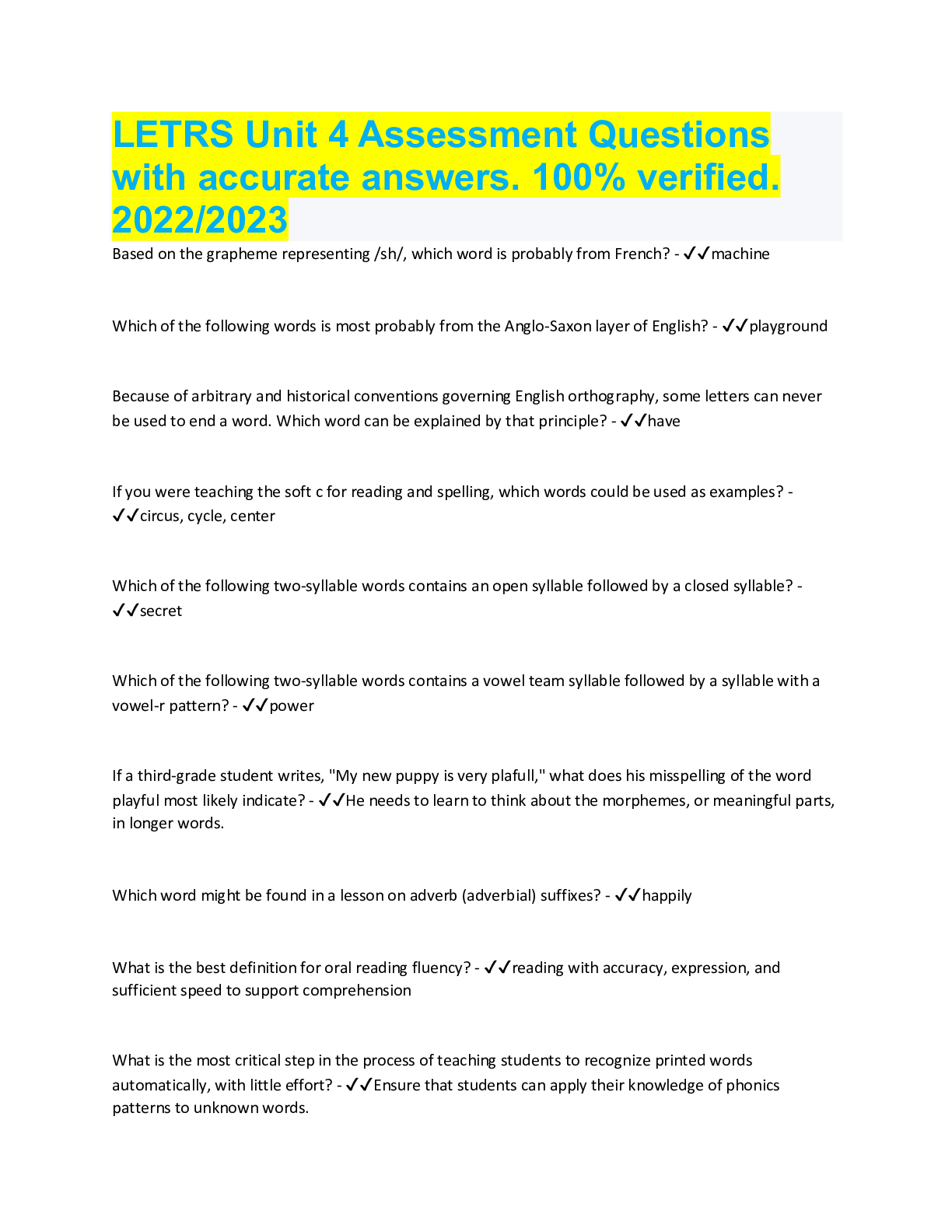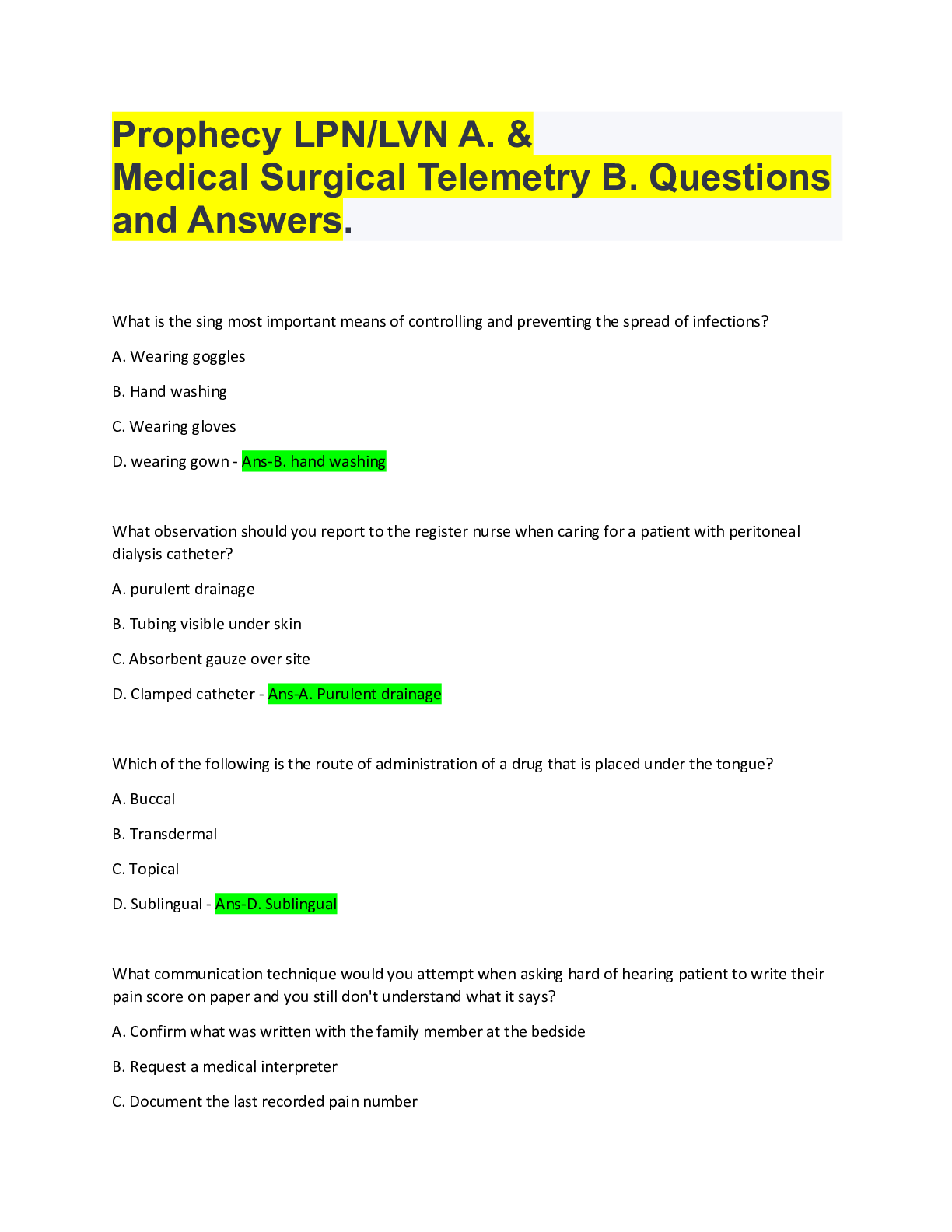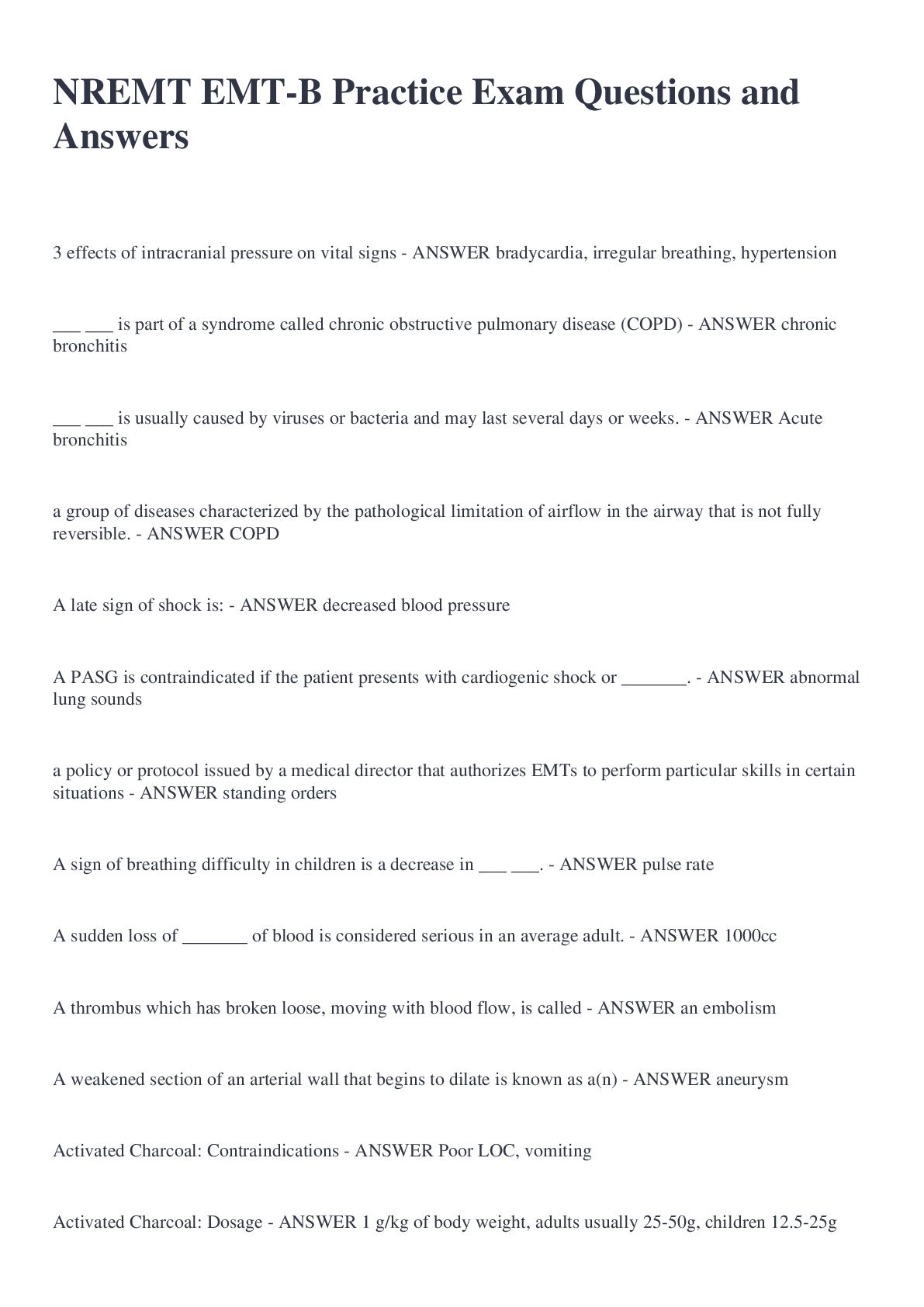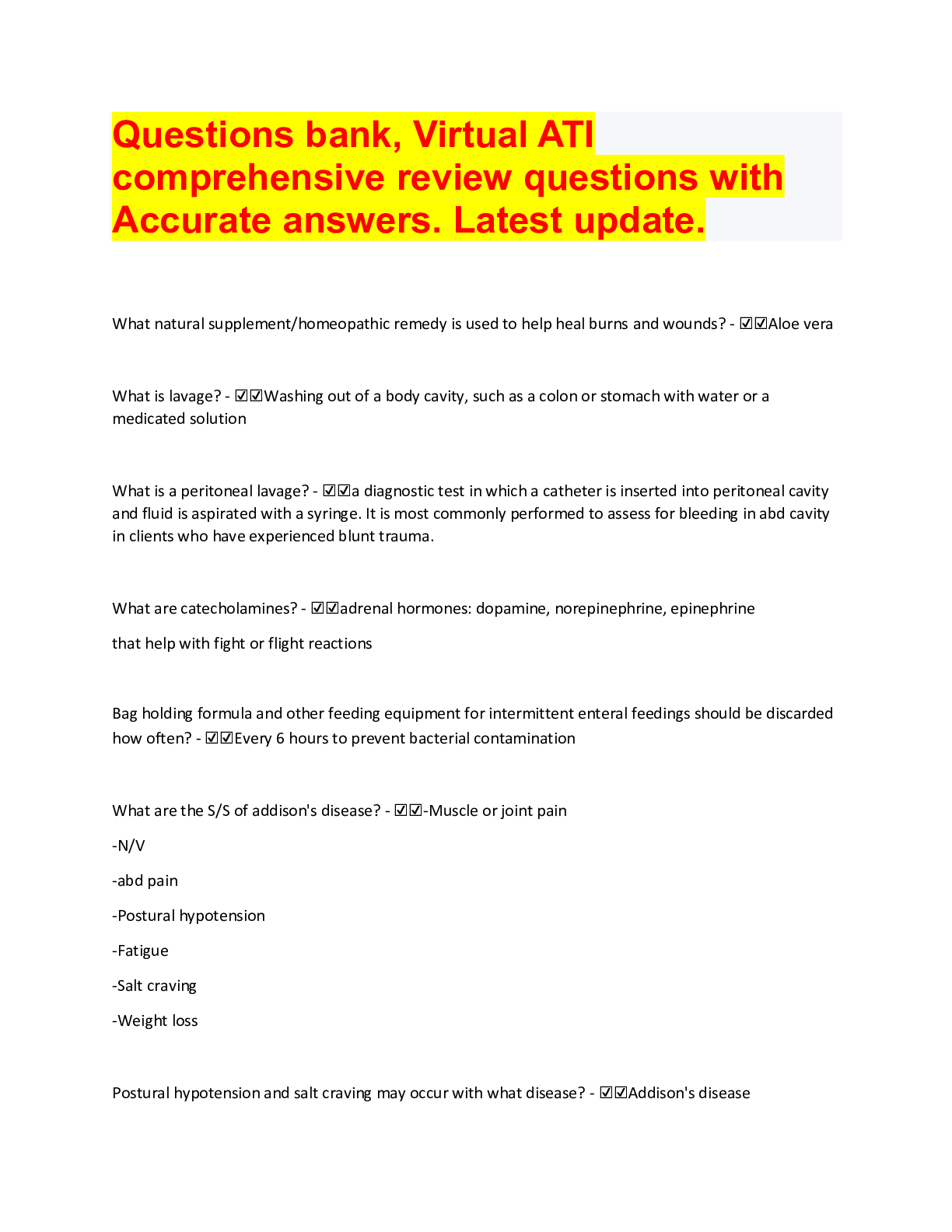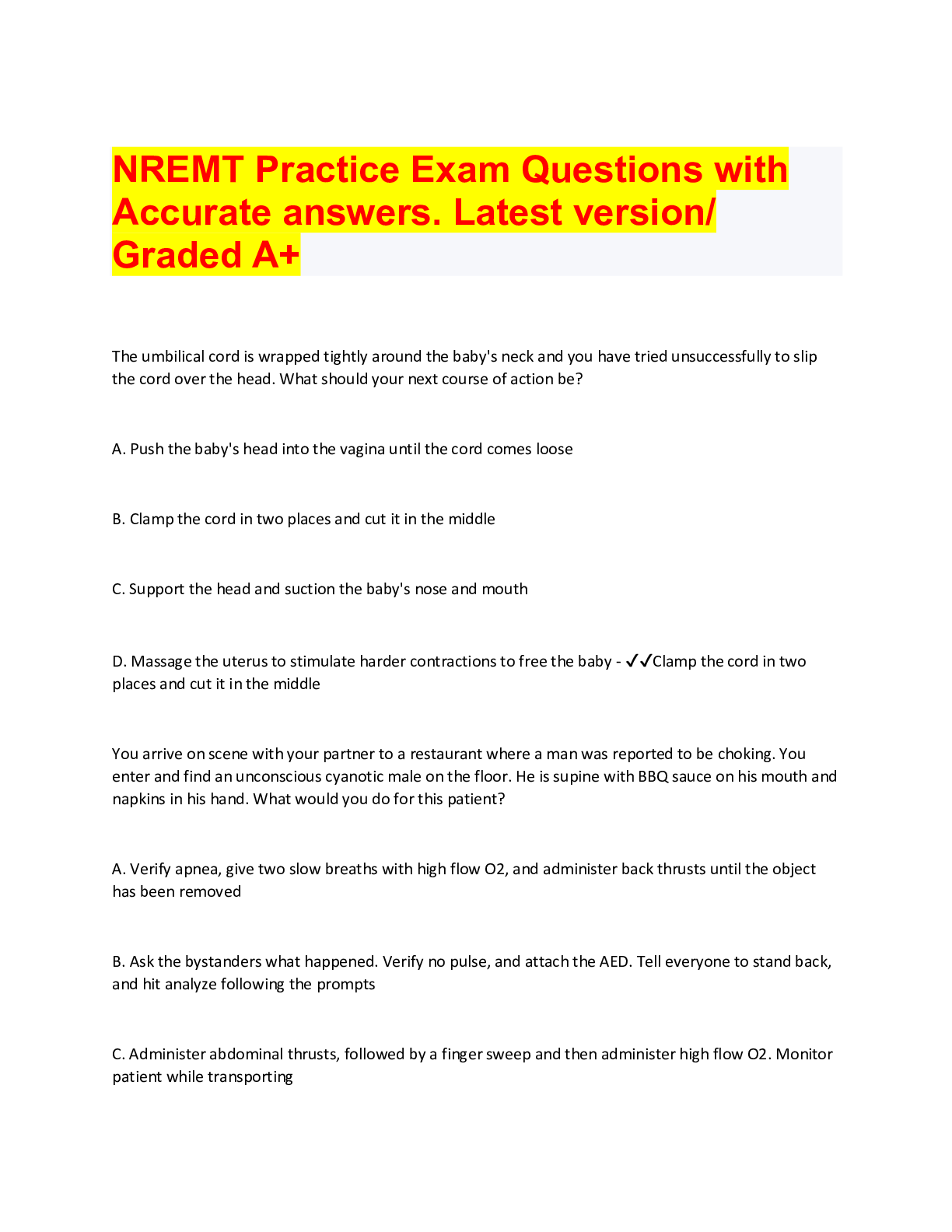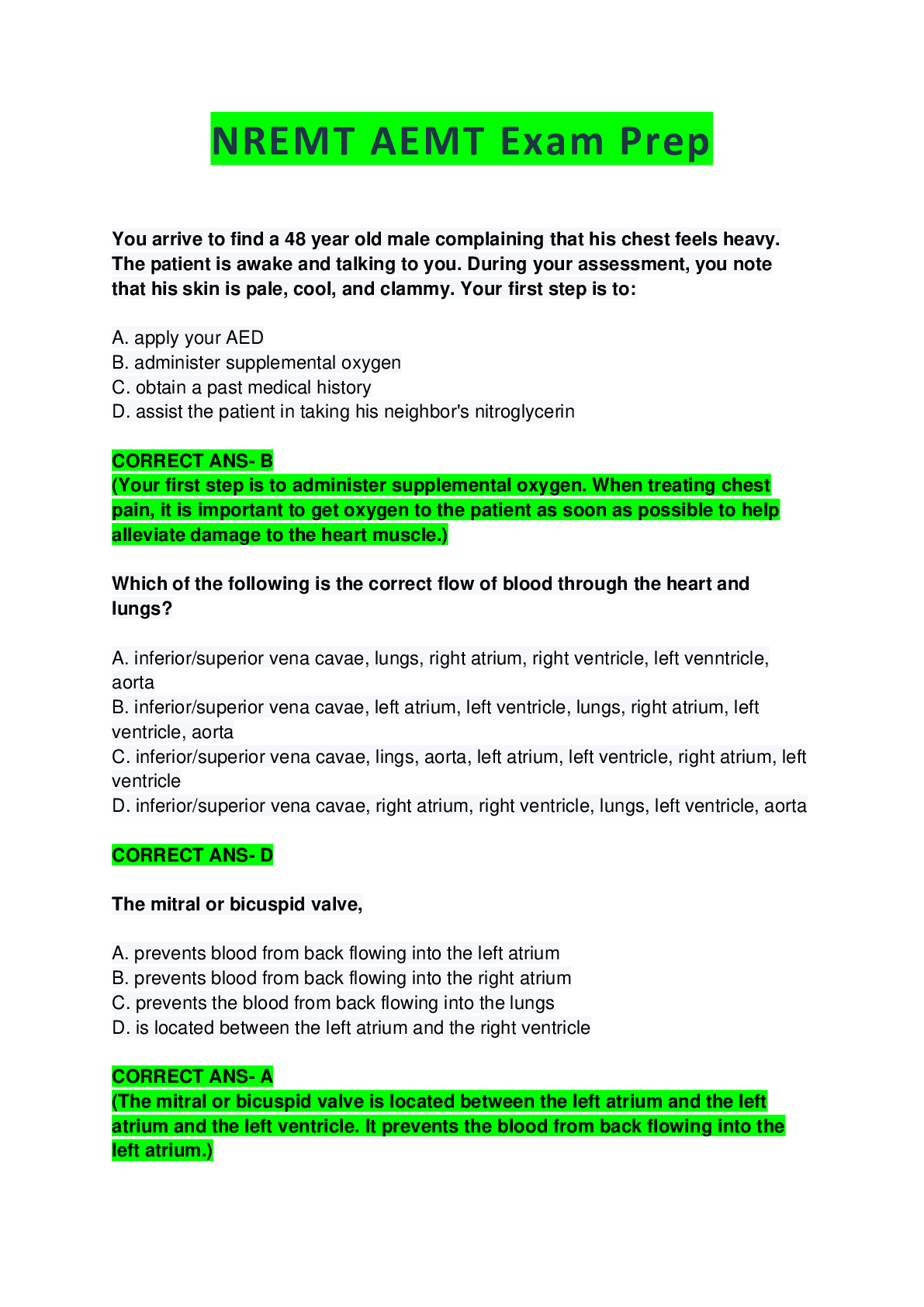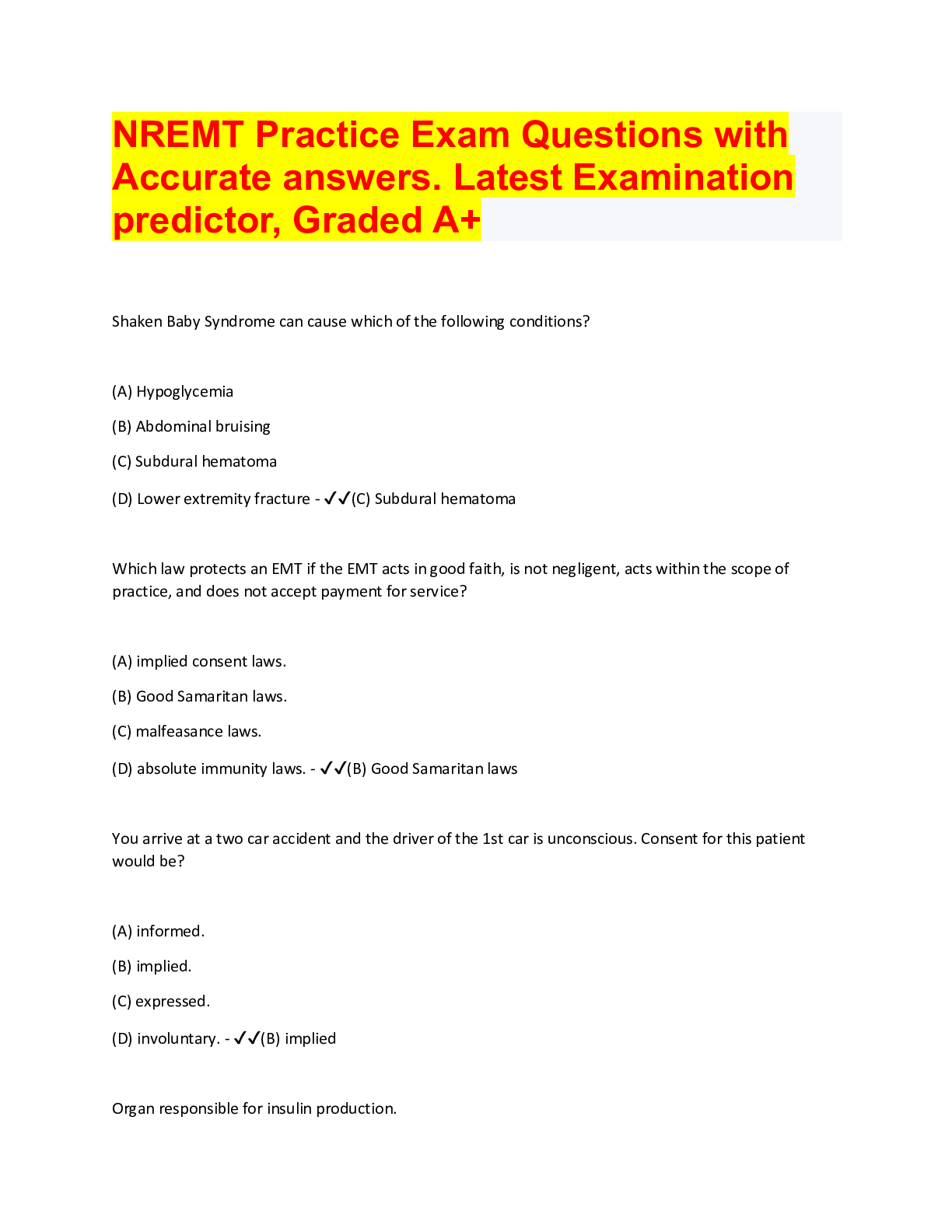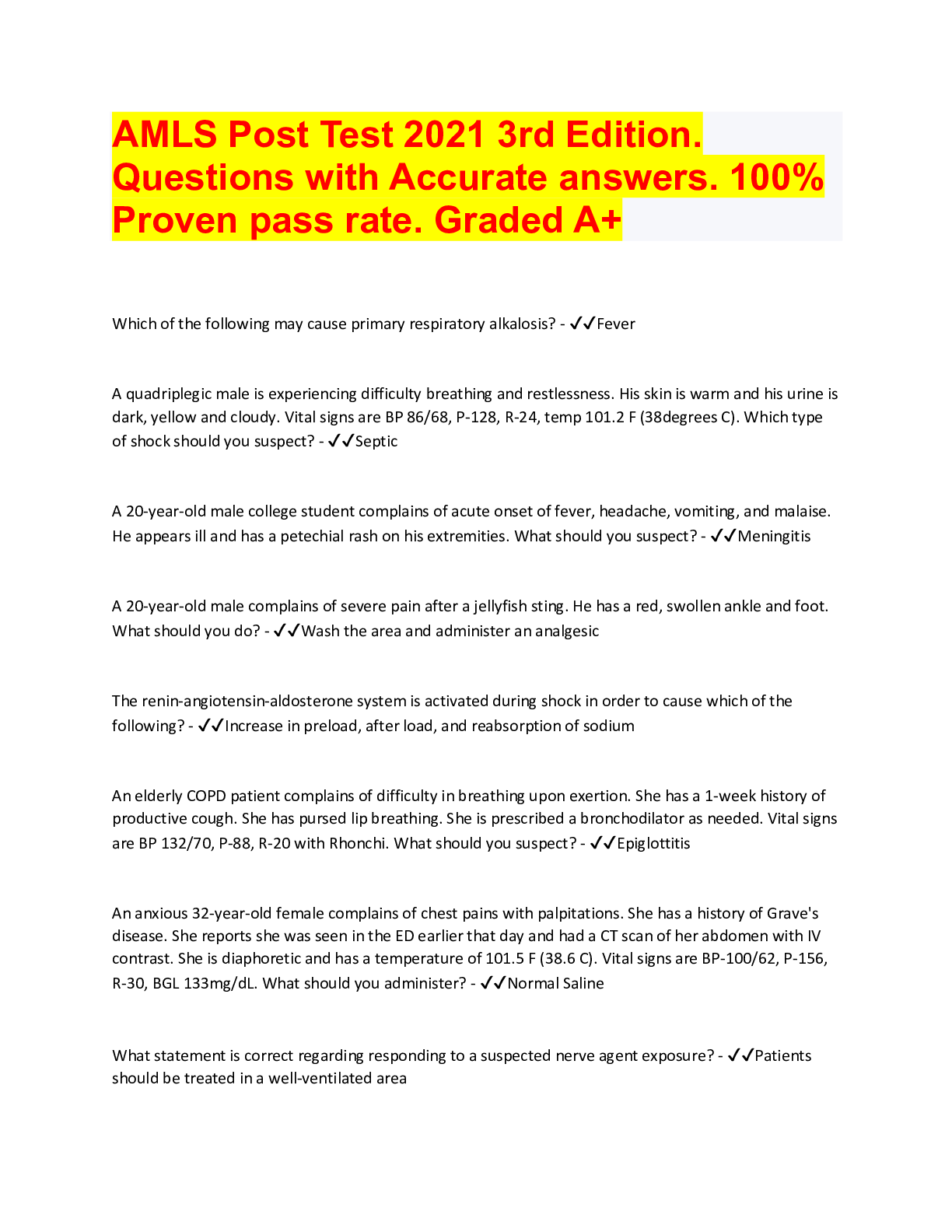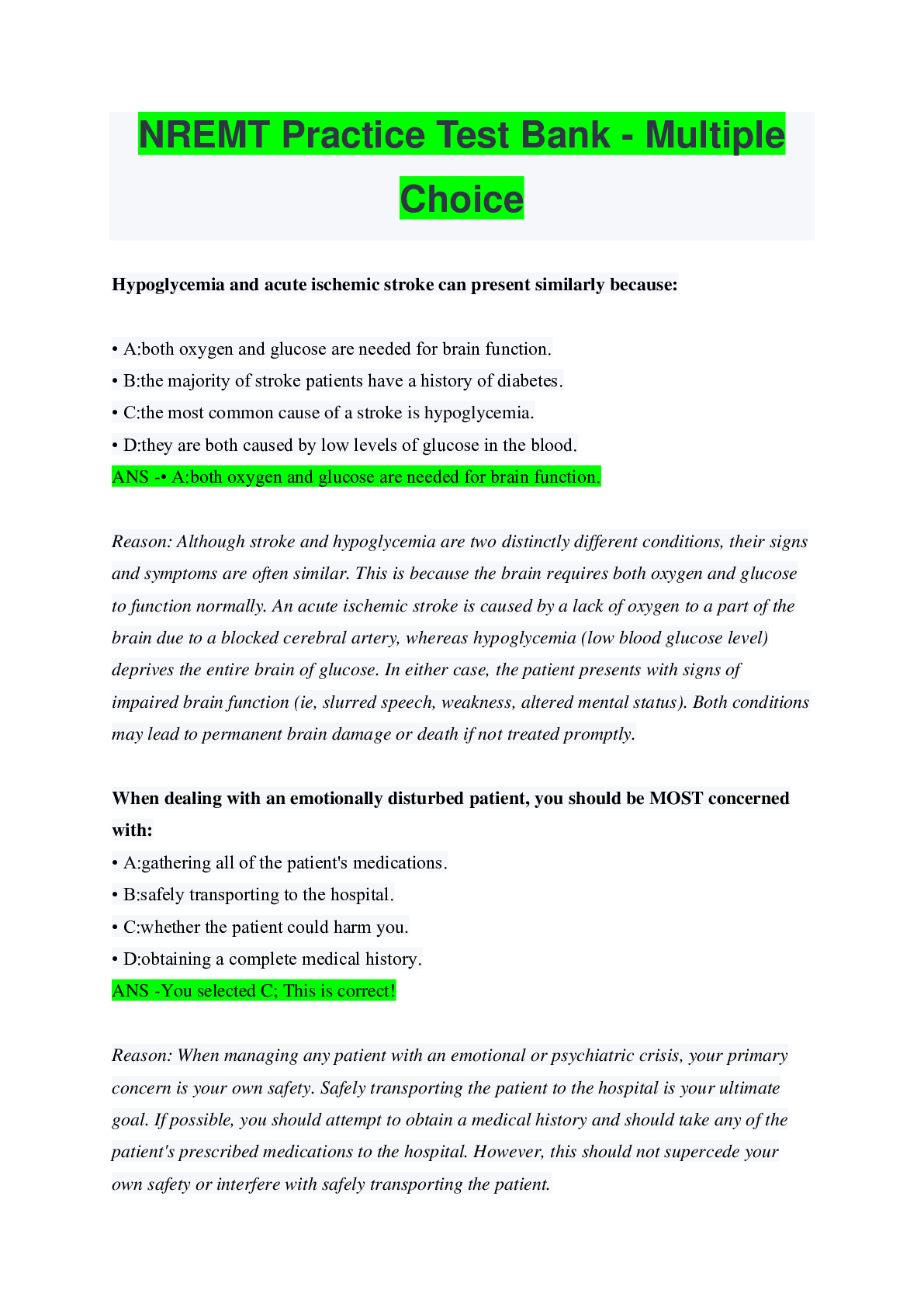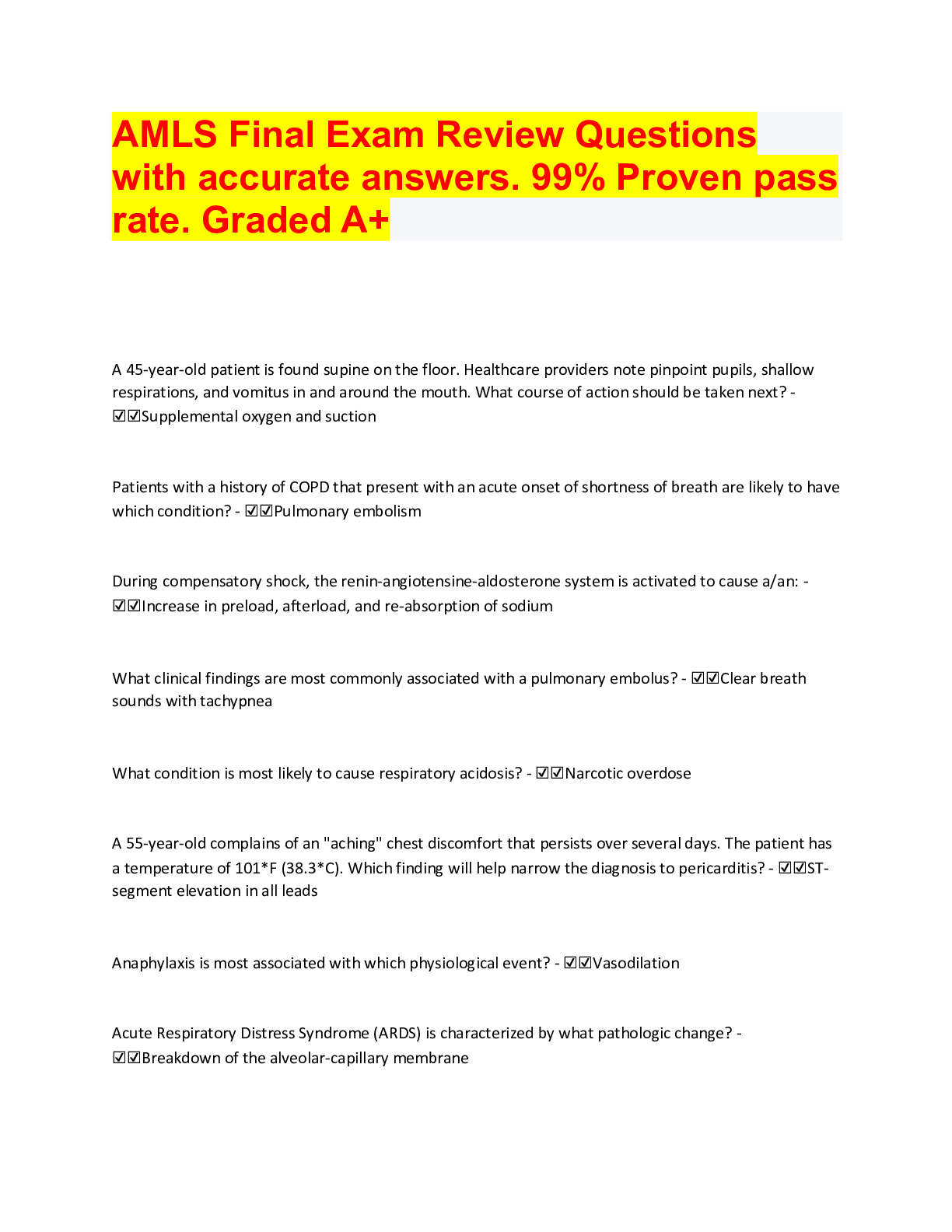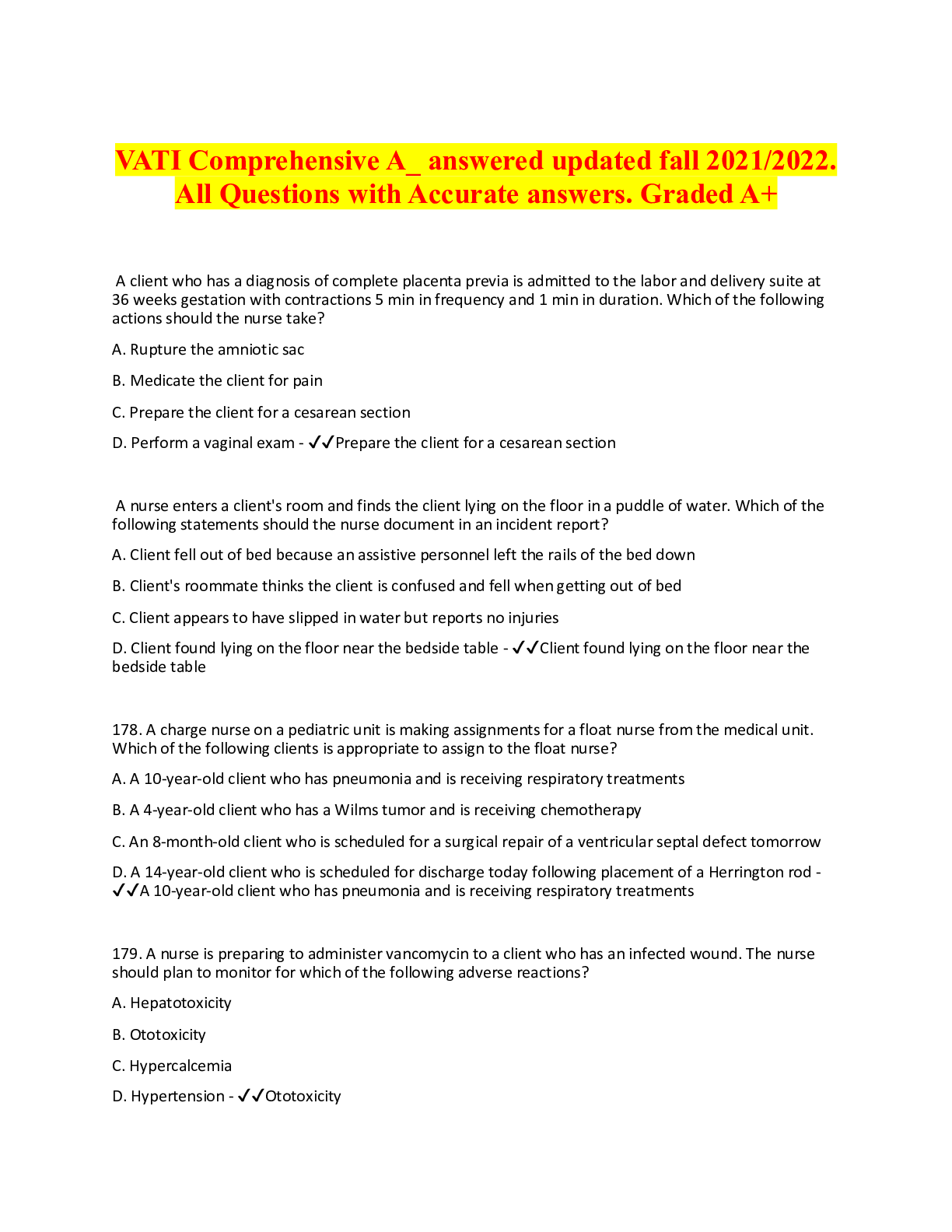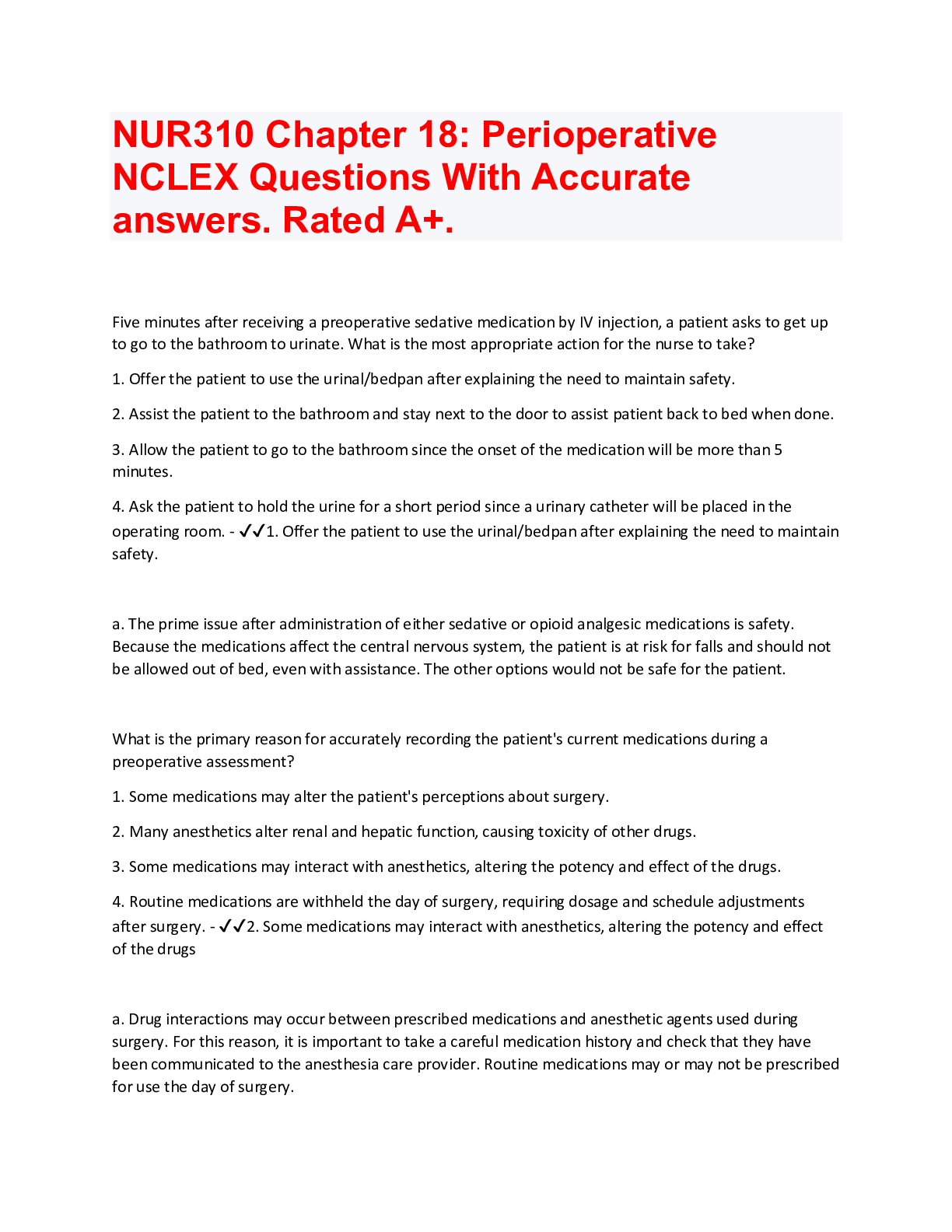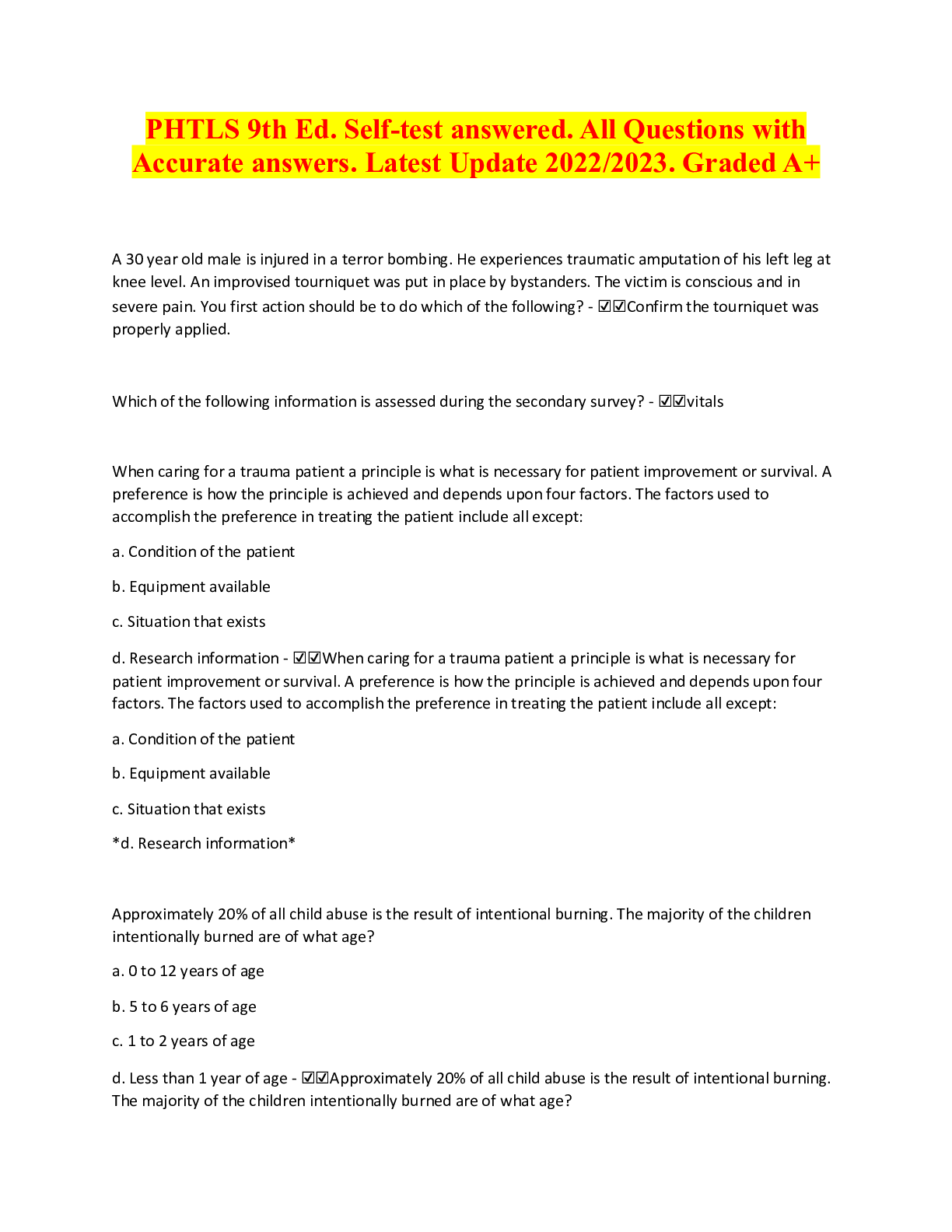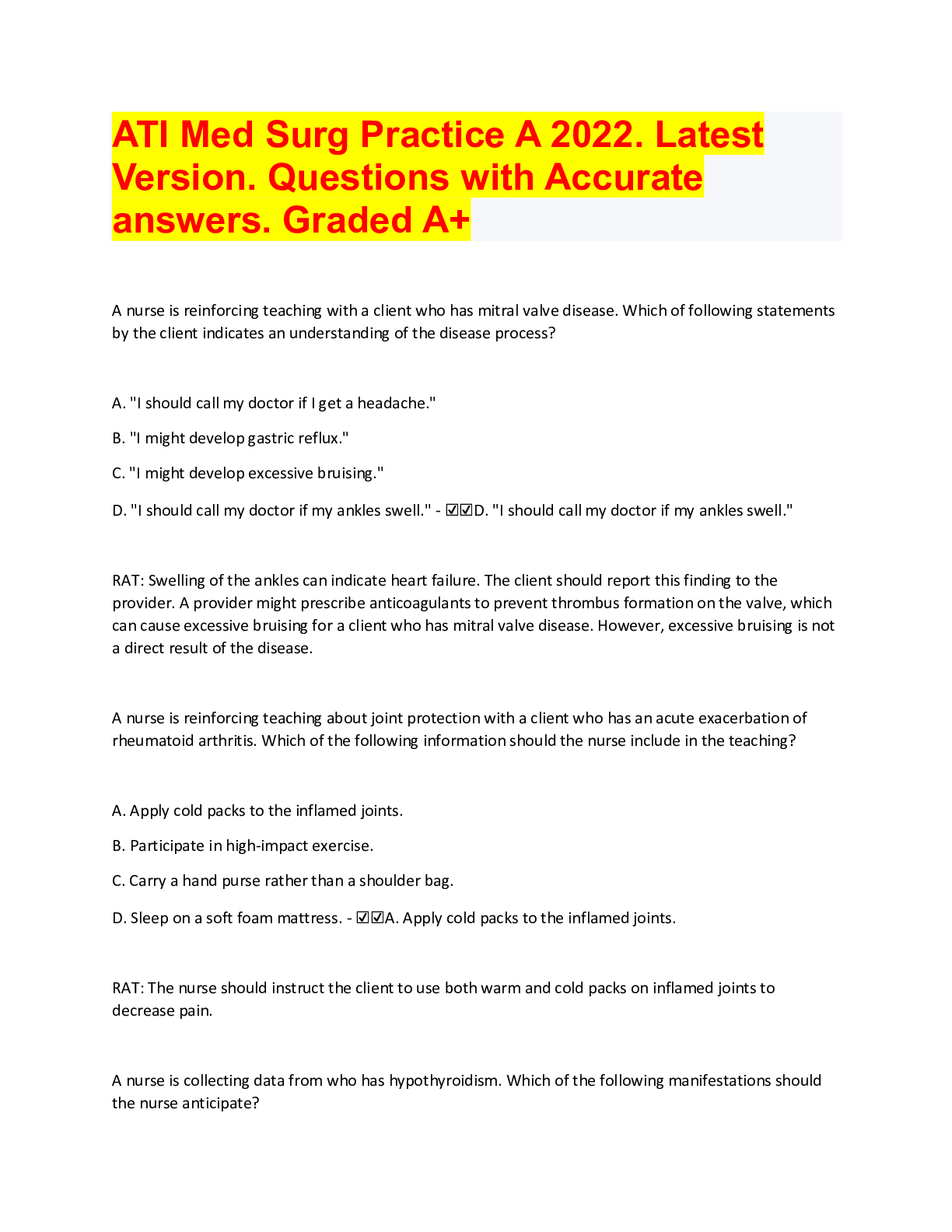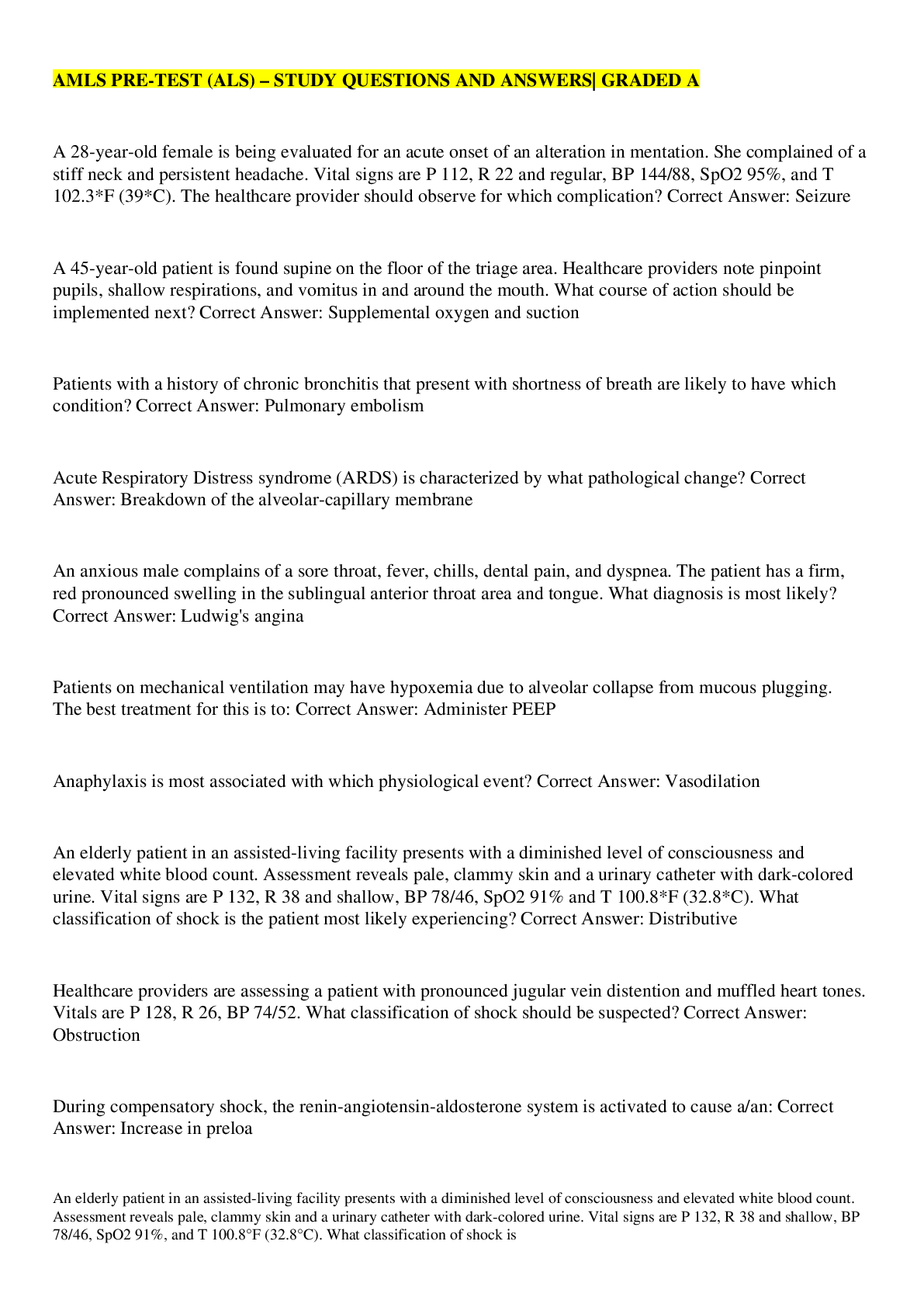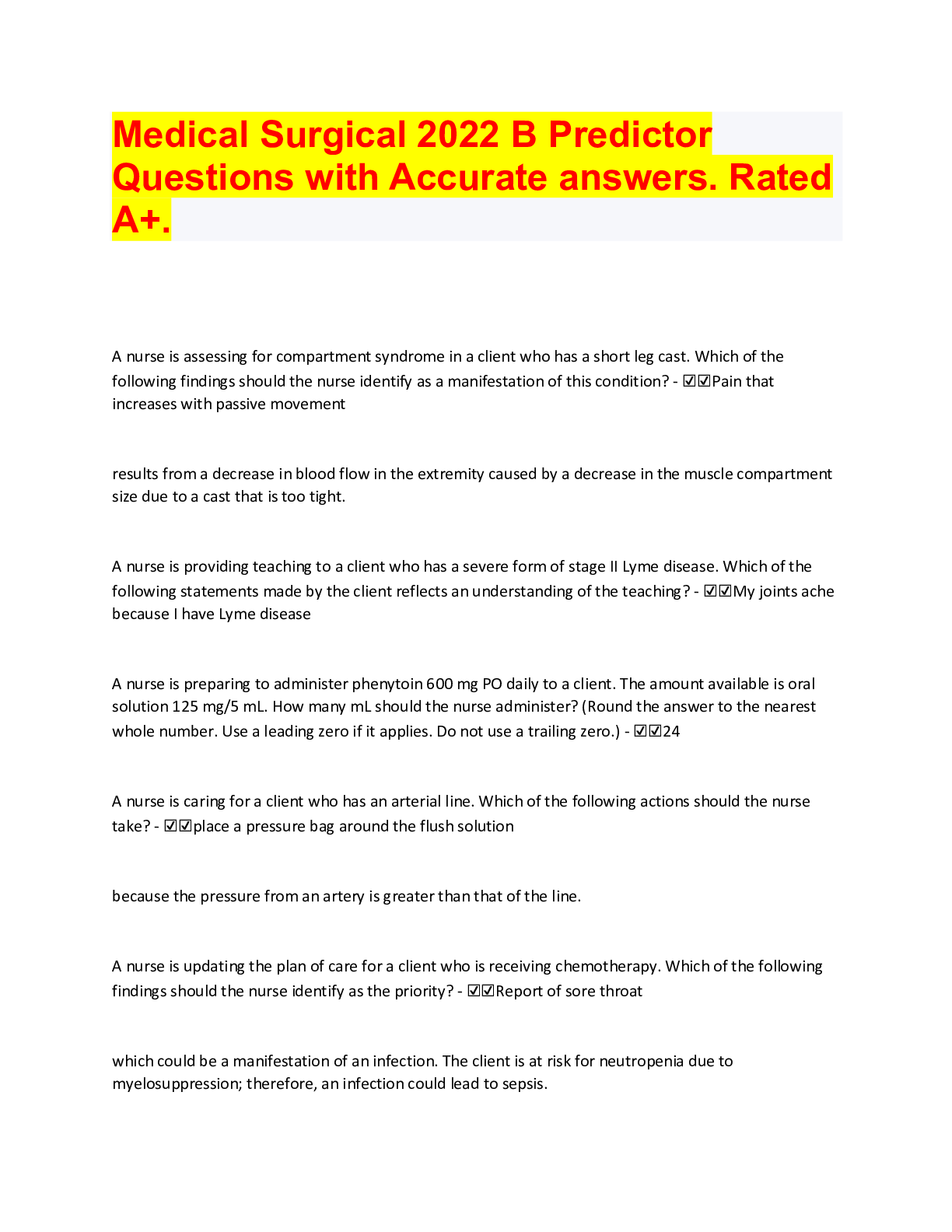Nutrition > QUESTIONS & ANSWERS > Topic 3: Human Physiology. Questions with accurate answers. Latest updates. (All)
Topic 3: Human Physiology. Questions with accurate answers. Latest updates.
Document Content and Description Below
Topic 3: Human Physiology. Questions with accurate answers. Latest updates. Question 1 Correct 4.00 points out of 4.00 Flag question Question text Which of the following is stored within... the nucleus of the cell and acts as a code book for synthesizing specific proteins? Select one: a. RNA b. Cells c. Organs d. DNA Question 2 Incorrect 0.00 points out of 4.00 Flag question Question text The study of how genes determine our nutritional requirements is called Select one: a. nutrigenomics. b. nutrigenetics. c. nutritional biochemistry. d. genetic engineering. Question 3 Correct 4.00 points out of 4.00 Flag question Question text A(n) _______________ is a medication that inhibits the ability of gastric cells to secrete hydrogen ions. Select one: a. proton pump inhibitor b. NSAID c. antacid d. antibiotic Question 4 Correct 4.00 points out of 4.00 Flag question Question text The study of the ways nutrients and food influence gene expression is called Select one: a. epidemiology. b. molecular biology. c. nutrigenomics. d. nutrigenetics. Question 5 Correct 4.00 points out of 4.00 Flag question Question text A compound that allows for communication between one cell and the next is a Select one: a. neurotransmitter. b. neuron. c. nephron. d. synapse. Question 6 Correct 4.00 points out of 4.00 Flag question Question text Which of the following is true about digestive enzymes? Select one: a. One enzyme can speed many types of chemical processes. b. Enzymes are not sensitive to temperature. c. Enzymes that work in the acidic environment of the stomach cannot work in the basic or alkaline environment of the small intestine and vice versa. d. Enzymes typically work independently of vitamins or minerals. Question 7 Correct 4.00 points out of 4.00 Flag question Question text To which body part does blood travel to pick up oxygen and release carbon dioxide? Select one: a. Heart b. Lungs c. Liver d. Kidneys Question 8 Correct 4.00 points out of 4.00 Flag question Question text A recurrent and serious form of heartburn is called Select one: a. gastroesophageal reflux disease. b. cardiovascular reflux disease. c. esophageal ulceritis. d. gastric distress. Question 9 Correct 4.00 points out of 4.00 Flag question Question text Excessive acid production in the stomach or upper small intestine could result in Select one: a. poor iron, calcium, and folate absorption. b. excessive intestinal bacterial growth. c. an ulcer. d. decreased fiber digestion and absorption. Question 10 Correct 4.00 points out of 4.00 Flag question Question text Absorption of nutrients by intestinal cells occurs by all of the following mechanisms EXCEPT Select one: a. sustained absorption. b. passive absorption. c. active absorption. d. facilitated absorption. [Show More]
Last updated: 1 year ago
Preview 1 out of 5 pages

Reviews( 0 )
Document information
Connected school, study & course
About the document
Uploaded On
Jan 04, 2023
Number of pages
5
Written in
Additional information
This document has been written for:
Uploaded
Jan 04, 2023
Downloads
0
Views
129

.png)
